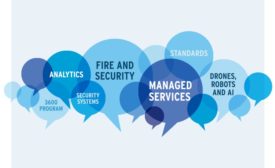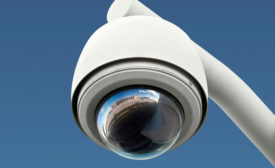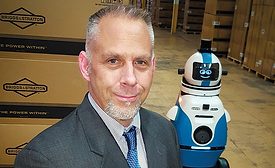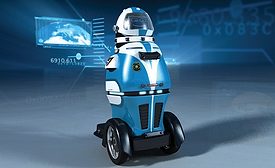Home » security robots
Articles Tagged with ''security robots''
Top Security Guarding Companies Report 2016
The security officer industry faces a ‘Watershed Moment’ as consolidation alters the landscape.
December 1, 2016
Robots Could Run Security Screening Soon
Americans vying for national security clearances in the future can expect a face-to-screen experience as an on-screen avatar conducts computer-generated interviews.
September 1, 2014
Sign-up to receive top management & result-driven techniques in the industry.
Join over 20,000+ industry leaders who receive our premium content.
SIGN UP TODAY!Copyright ©2024. All Rights Reserved BNP Media.
Design, CMS, Hosting & Web Development :: ePublishing










